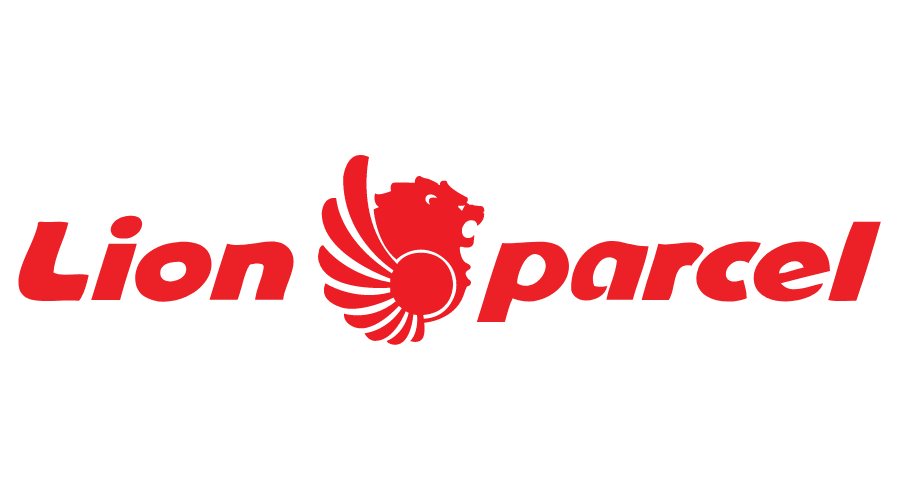Kategori
- SOLUTIONS
- OMNI CONTACT CENTER
- HOSTED | CLOUD PBX
- SIP TRUNKING
- SOLUSI HEMAT TELEPON
- IP PBX AND APPLIANCES
- IP PHONE
- CORDLESS IP PHONE
- WIFI IP PHONE
- VIDEO IP PHONE
- GIGABIT IP PHONE
- VIDEO CONFERENCE
- CONFERENCE CAMERA
- INTERACTIVE BOARD
- CONFERENCE PHONE
- CONFERENCE SYSTEM
- HEADSET
- VOIP GATEWAY
- ISDN E1 GW | CONVERT
- GSM GATEWAY
- IP INTERCOM
- IP PAGING
- NETWORK SWITCH
- WI-TEK
- Unmanaged PoE Switch
- Unmanaged ETH Switch
- Managed PoE Switch
- Reverse PoE Switch
- Passive PoE Switch
- No-Break PoE Switch
- Auto-Sense PoE Switch
- Cloud Mesh AP
- Cloud Mesh WiFi 6 Router
- Cloud L2 Managed PoE Switch
- Cloud L2 Managed Fiber Aggregation Switch
- Cloud Platform
- Mobile Cloud APP
- Cloud Mesh WiFi 6 Router
- Cloud L2 Managed PoE Switch
- Cloud L2 Managed Fiber Aggregation Switch
- Cloud Easy Smart Managed PoE Switch
- 4G LTE Outdoor CPE
- 4G LTE Indoor Wi-Fi Router
- UPS No-Break Solar PoE Switch
- Smart IoT Box
- Smart PoE Tech for WISP
- Outdoor Waterproof PoE Switch
- PoE Switch for CCTV
- Hi-PoE Long-Range PoE Switch for CCTV
- Fiber PoE Switch
- Full Gigabit PoE Switch
- SNMP Managed Gigabit PoE Switch
- Gigabit Ethernet Switch
- 2.5G/10G SWITCH
- Easy Smart Ethernet Switch
- Easy Smart PoE Switch
- Hardened PoE Switch
- Industrial Cloud Switch
- Superic Industrial Switch
- Mixed Industrial PoE Switch
- Boost Voltage Industrial PoE Switch
- 90W PoE Switch/PoE Injector/PoE Splitter
- Waterproof Industrial PoE Extender/PoE Inejctor/PoE Splitter
- PoE Injector,Splitter and Extender
- Gigabit SFP Fiber module
- Wireless Long-Range Transmit for CCTV IP Camera
- Fiber Optical Transceiver
- Indoor and Outdoor Cloud AP
- Cloud AP Controller/Enterprise Load Balance Gateway
- 3-10KM Long-Range Outdoor CPE for WISP
- 10-30KM Long-Range Outdoor CPE for WISP
- 24V Reverse PoE Switch
- SNMP Managed Gigabit Reverse PoE Switch
- Fiber Ethernet Switch
- SNMP Managed Gigabit Ethernet Switch
- GPON ONU PoE Switch
- HIMAX
- PROCET
- INDUSTRIAL POE Switch
- POE SWITCH
- GIGABIT ETH Switch
- OUTDOOR POE SWITCH
- HRUI
- WI-TEK
- WIRELESS AP
- CCTV | SURVEILLANCE
- SERVERS
- FIBER OPTIC & 3 PLAY
- ROUTER
- IP CAMERA
- SERVICES
- PA SYSTEM

PT. DIVATEL PRATAMA
Menara Kuningan 6th Floor,
Jl. H.R. Rasuna Said Blok X-7 Kav.5,
Jakarta Selatan 12940
Telp.: 021-30022778 (Hunting)
0852 8940 4589 (Mobile/WA)
Email: [email protected]
 User Online
User Online
Today Accessed: 5482
Total Accessed: 519770
Your IP: 216.73.216.164, 216.73.216.164
10 Reasons to Switch to an IP PBX
written by at 2015-02-11
Switch to an IP PBX: Benefits
What is an IP PBX?
An IP PBX is a complete telephony system that provides telephone calls over IP data networks. All conversations are sent as data packets over the network.
The technology includes advanced communication features but also provides a significant dose of worry-free scalability and robustness. The IP PBX is also able to connect to traditional PSTN lines via an optional gateway – so upgrading day-to-day business communication to this most advanced voice and data network is a breeze!
Enterprises don’t need to disrupt their current external communication infrastructure and operations. With an IP PBX deployed, an enterprise can even keep its regular telephone numbers. This way, the IP PBX switches local calls over the data network inside the enterprise and allows all users to share the same external phone lines.
How it works

Figure 1 – How an IP PBX integrates into the network
An IP PBX or IP Telephone System consists of one or more SIP phones, an IP PBX server and optionally a VoIP Gateway to connect to existing PSTN lines. The IP PBX server functions in a similar manner to a proxy server. SIP clients, being either soft phones or desk phones, register with the IP PBX server, and when they wish to make a call they ask the IP PBX to establish the connection. The IP PBX has a directory of all phones/users and their corresponding SIP address and thus is able to connect an internal call or route an external call via either a VoIP gateway or a VoIP service provider. More information and commonly asked questioned about IP PBXs can be found on IP PBX, SIP & VoIP FAQ.
Benefit #1: Much easier to install & configure than a proprietary phone system:
An IP PBX runs as software on a computer and can leverage the advanced processing power of the computer and user interface as well as Windows features. Anyone proficient in networking and computers can install and maintain an IP PBX. By contrast a proprietary phone system often requires an installer trained on that particular system!
Benefit #2: Easier to manage because of web/GUI based configuration interface:
An IP PBX can be managed via a web-based configuration interface or a GUI, allowing you to easily maintain and fine tune your phone system. Proprietary phone systems have difficult-to-use interfaces which are often designed to be used only by phone technicians.
Benefit #3: Significant cost savings using VoIP providers:
With an IP PBX you can easily use a VOIP service provider for long distance and international calls. The monthly savings are significant. If you have branch offices, you can easily connect phone systems between branches and make free phone calls.
Benefit #4: Eliminate phone wiring!
An IP Telephone system allows you to connect hardware IP phones directly to a standard computer network port (which it can share with the adjacent computer). Software phones can be installed directly on the PC. You can now eliminate the phone wiring and make adding or moving of extensions much easier. In new offices you can completely eliminate the need for wiring extra ports to be used by the office phone system!
Benefit #5: Eliminate vendor lock in!
IP PBXs are based on the open SIP standard. You can mix and match any SIP hardware or software phone with any SIP-based IP PBX, PSTN Gateway or VOIP provider. In contrast, a proprietary phone system often requires proprietary phones to use advanced features, and proprietary extension modules to add features.
Benefit #6: Scalable!
Proprietary systems are easy to outgrow. Adding more phone lines or extensions often requires expensive hardware modules. In some cases you need an entirely new phone system. Not so with an IP PBX. A standard computer can easily handle a large number of phone lines and extensions – just add more phones to your network to expand!
Benefit #7: Better customer service & productivity!
With an IP PBX you can deliver better customer service and better productivity. Since the IP telephone system is now computer-based, you can integrate phone functions with business applications. For example, bring up the customer record of the caller automatically when you receive his/her call, dramatically improving customer service and cutting cost by reducing time spent on each caller. Outbound calls can be placed directly from Outlook, removing the need for the user to type in the phone number.
Benefit #8: Twice the phone system features for half the price!
Since an IP PBX is software-based, it is easier for developers to add and improve feature sets. Most VoIP phone systems come with a rich feature set, including auto attendant, voice mail, ring groups, advanced reporting and more. These options are often very expensive in proprietary systems.
Benefit #9: Allow hot desking & roaming!
Hot desking, the process of being able to easily move offices/desks based on the task at hand, has become very popular. Unfortunately traditional PBXs require extensions to be re-patched to the new location. With an IP PBX the user simply takes his phone to his new desk – No patching required!
Users can roam too – if an employee has to work from home, he/she can simply fire up their SIP software phone and are able to answer calls to their extension, just as they would in the office. Calls can be diverted anywhere in the world because of the SIP protocol characteristics!
Benefit #10: Better phone usability: SIP phones are easier to use!
Employees often struggle using advanced phone features. Setting up a conference, or transferring a call on an old PBX requires detailed instructions.
Not so with an IP PBX – all features are easily performed from a user friendly Windows GUI. In addition, users get a better overview of the status of other extensions, of inbound calls, call queues, and presence via the IP PBX Windows client. Proprietary systems often require expensive “system” phones to get an idea what is going on on your phone system and even then, status information is cryptic at best.
Conclusion
Investing in a software-based IP PBX makes a lot of sense, not only for new companies buying a phone system, but also for companies who already have a PBX. An IP PBX delivers such significant savings in management, maintenance, and call costs, that upgrading to an IP PBX, should be the obvious choice for any company.
Tags :
Comments
 021-30022778
021-30022778
![]() SALES & MARKETING :
SALES & MARKETING :
Indra Ilham - Ext. 111
John - Ext. 110
DIVATEL - 0851-7306-0800
Ismed S. - 0852-8940-4589
Dipa A. - 0821-1063-2366
Indra Ilham - 0818-188-818-59
John - 0812-1070-3999
![]() INTERACTIVE DISPLAY :
INTERACTIVE DISPLAY :
Dharma - 0878-7753-7902
Carlo - 0878-8796-8114
![]() EMAIL :
EMAIL :
Keranjang Belanja
Diskon
-

Escene ES290PN
Rp 866.000 Rp 826.000
Produk baru
Dinstar UC200 Pro - IP PBX
- UC200 Pro is a powerful and reliable IP PBX designed to meet the...
Lebih lanjut Distributor Dinstar C60U-W IP Phone WiFi Murah Berkualitas Promo 2025
- Distributor Dinstar C60U-W IP Phone WiFi Murah Berkualitas Promo 2025...
Lebih lanjut Milesight MS-C5321-FPE — AI Multi-Sensor Multi-Directional Camera 4×5MP
- Dapatkan pengawasan 360° menyeluruh dengan Milesight MS-C5321-FPE,...
Lebih lanjut














































































Leave a comment